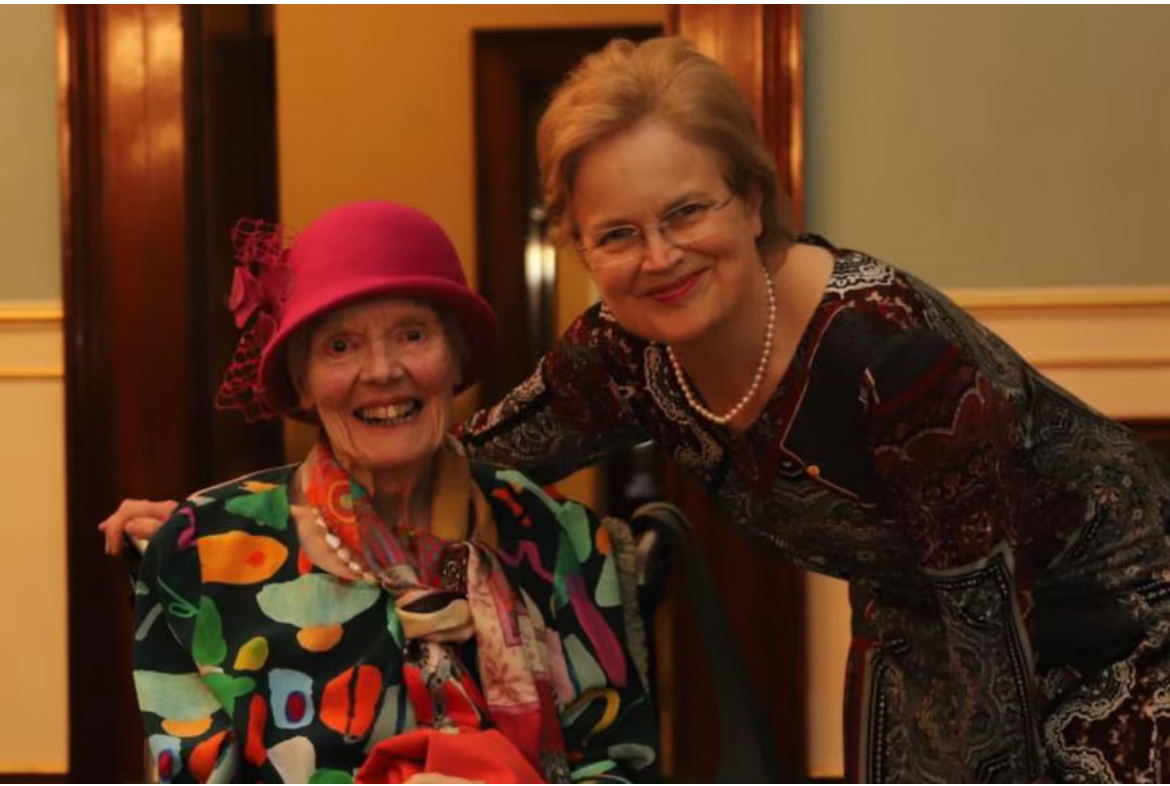Tuesday 11th June 2024
Ms Cashmore was a true legislative pioneer, a passionate advocate for quality palliative care and as a result she significantly improved palliative care in South Australia.
Jennifer Cashmore AM, was the Chair of Palliative Care SA (PCSA) board from 1993-1996, a PCSA life member and her daughter and son-in-law are both current patrons of PCSA.
Ms Cashmore was a true legislative pioneer, a passionate advocate for quality palliative care and as a result she significantly improved palliative care in South Australia.
The Consent to Medical Treatment and Palliative Care Act is pivotal to the provision of palliative care in SA. Jennifer Cashmore AM was the SA Liberal Member for Coles (now Morialta) from 1977 to 1993 and Minister of Health from 1979 to 1982.
She had a background in advertising and journalism and was the 3rd liberal woman to sit in the House of Assembly.
Ms Cashmore sought to establish a Select Committee of “The Law and Practice relating to Death and Dying” as a back-bench member of Parliament
The Natural Death Act was in place, which included the following gaps:
- It was not well known or understood
- There was no legal obligation for medical practitioners to inform patients of their rights
- No provision for an agent to consent on behalf of another person
- And a fear of prosecution if treatments were limited or withdrawn with the intention of allowing death to occur
There was significant opposition from the Catholic Church, and the Lutheran Church of Australia. Ms Cashmore was accused of ‘embarking on a very dangerous project as far as the common good was concerned.’ And that her actions would ‘encourage public confusion and give occasion for mischief.’
But there was Liberal party support. Ms Cashmore consulted with Labor ministers, the caucus and Independent MPs. An important step occurred when the Minister for Health, Dr Don Hopgood, agreed to support the motion.
Ms Cashmore wrote to every hospital, nursing home, retirement village and senior citizens club and all the Heads of Churches in South Australia.
In a Speech given by Ms Cashmore in 1990 she articulated the following points:
- The increasing ability of medicine to prolong life
- The high standards of living and greater longevity in South Australians
- A greater incidence of cancer
- A lack of emphasis on the needs of dying patients.
- That death-denying attitudes existed widely in both the medical profession and the general community.
- And public opinion demonstrated interest about these issues and about measures at the end of life.
And stated “We should not be seeking apparently easy legislative solutions. We should be asking deeper questions. We should be asking why so many people dread the prospect of pain, of being a burden, of being in a vegetative or demented state, and dread the loss of identity and dignity that goes with that. We should be asking how society can care more adequately for these people and relieve their suffering and loneliness, and we should be asking how we can help health professionals to achieve that goal.”
The committee took 2 years to hear the evidence. It met 38 times, heard approximately 400 written submissions, and heard evidence from more than 30 expert witnesses and issued 3 Reports. The Second Report had 37 recommendations about changes to the law, policy on palliative care, professional education, community awareness, funding and reporting procedures. The final report was delivered in November 1992.
The Consent to Medical Treatment and Palliative Care Bill was passed on 6 April 1995.
(More than 3 years after it was first submitted for scrutiny by the Select Committee and more than 4 years of examination by the Parliament.)
It is said to be the first legislation in the world to include the words “Palliative Care” and the first to provide statutory support for the relief of pain and distress.
PCSA Chair, Ms Susan Emerson said “Ms Cashmore’s great drive and vision, was a true inspiration to the palliative care community. We thank her for her perseverance to make legislative change for South Australia and for her support for the palliative care community and our peak body Palliative Care SA”
“Ms Cashmore died at home on Monday morning aged 86. PCSA wishes her family and loved ones love and comfort during this time”.
Image_ Instagram: governorsouthaustralia.
PCSA would like to thank Professor Greg Crawford for his leadership in capturing the history of PCSA and Palliative Care in SA.

